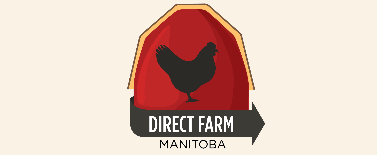What – Over-Development!?
 Tuesday, November 20, 2018 at 9:59AM
Tuesday, November 20, 2018 at 9:59AM by Eric Rempel
We have all used the term under-developed nations or under-developed regions. We may not have a definition at our fingertips, but we know what we mean when we say under-developed. But do we ever describe a country or region as over-developed? Can we conceive of that being an accurate description of a country or region? Would we recognize over-development if we saw it? What does it look like?
Let's explore that concept.
We associate under-development with poverty, poor health care, poor education, unemployment, etc. Per capita income is low, average life span is low.
Under-developed countries are also under capitalized. Not only is health poor, there are few hospitals and few doctors. Not only are the people poorly educated, but there are few schools, and schools are poorly equipped. There are few teachers, and the teachers are poorly trained. There are few roads, and the roads that are there are in poor condition. [Using Google Earth, compare the road network in eastern Congo with the road network in southeastern Manitoba.] There may be significant natural resources, but the means of accessing the natural resource is not there. The capital necessary for development is not there. That's under-development.
What about over-development? We rarely use that term. How might we recognize over-development? I am not aware of a good definition for over-development, but let me suggestion a few indicators that point to it.
Maybe we have reached over-development when increased income no longer leads to increased happiness. Various institutions have tried to develop indicators of happiness. There are many. You can look for them, and you may find one you prefer over others, or you find none of them helpful. Some try to measure happiness at the family level, others at the national level. What is remarkable is that all of them say that at relatively low income, family income and happiness are closely correlated. At low income levels, an increase in income means medicines can be purchased, necessary food can be purchased, and children can be clothed and sent to school. However at higher income levels, increased income no longer leads to the purchase of necessities, and increased income no longer leads to increased happiness. Might it be that once a family or nation is at that place, where an increase in income no longer leads to an increase in happiness, that that family or nation is at the over-developed stage?
Furthermore what do over-developed fold do with additional income. How much of additional income is used to extract more resources from the earth. Wealth can be used to purchase more education, more leisure time, more creative works – activity that leaves the world richer. Wealth used in that way needs to be distinguished from wealth used to impoverish the earth. How can we view development as positive, if additional wealth is used to extract ever more quantities of non-renewal resources to satisfy frivolous needs such as recreational travel, excessively big houses, throw-away gadgets, single use plastics and other packaging, – you get the picture. If development activity leads to the impoverishment of the earth, how can this be viewed as development – as movement from a state of less development to one of more development. I suggest we have then crossed the hump. We are no longer moving towards development, but rather towards over-development.


